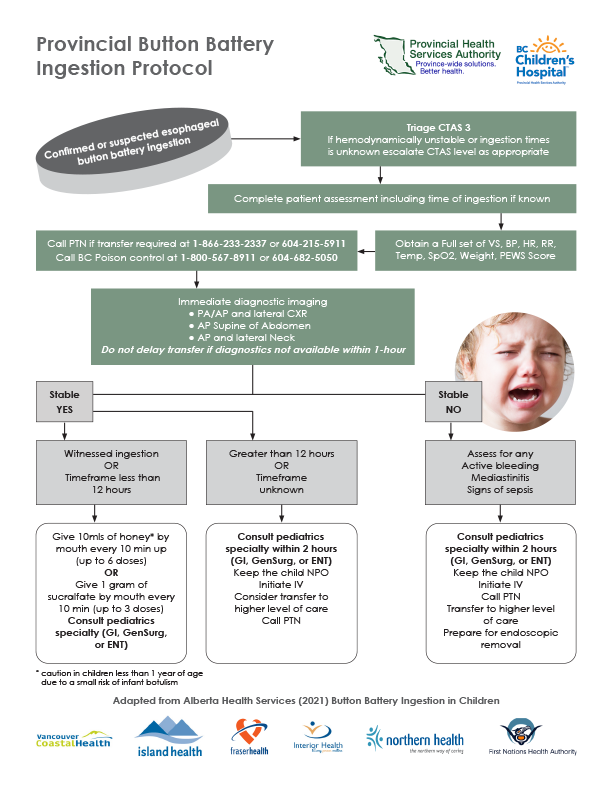While not a common occurrence, button battery ingestions can be catastrophic, leading to esophageal injury within two hours post ingestion, and should be considered a surgical emergency.
“It became crystal clear in Alberta that without a dedicated pathway and focus on these potentially high-risk patients presenting to the ED, although minimal presentations, the outcomes could be devastating. Due to a few poor outcomes, a collaborative effort was made across the Emergency SCN (Strategic Clinical Network), Surgery SCN, Maternal Child SCN, EMS, pharmacy, policy, media and operations to focus our efforts on this work in hopes of improving outcomes and delivering a higher level of care. Using evidence-informed medicine, the team’s collaboration brought the care of these patients to the forefront.”
– Heather Hair, Interior Health Authority Emergency Services Network Director
 BC’s regional health authority ED leads recently completed a review of Button Battery Ingestions, following a similar review by the Alberta Health Services. A pediatric ED working group was formed, with representation from provincial pediatric ED leads, BCPRIU, CHBC, and the regional health authorities, including FHNA.
BC’s regional health authority ED leads recently completed a review of Button Battery Ingestions, following a similar review by the Alberta Health Services. A pediatric ED working group was formed, with representation from provincial pediatric ED leads, BCPRIU, CHBC, and the regional health authorities, including FHNA.
The goal was to raise awareness of button battery ingestions in children and to provide education and support for treating clinicians. “I would consider all cases of suspected disc/button battery ingestion as extremely urgent/potentially life-threatening,” says Dr. Jeffrey Ludemann, UBC Pediatric Otolaryngologist & working group member.
The result is the Provincial Button Battery Ingestion Protocol (updated Sept 2022), with guidance for clinicians as well as the child’s parents/guardians (e.g., administering 10 mls of honey every 10 minutes, if stable, while awaiting treatment).
________________________
Download the full guidelines here (updated Sept 2022).
COMMENTS (0)
Add public comment…


POST COMMENT
We welcome your contribution! If you are a member, log in here. If not, you can still submit a comment but we just need some information.